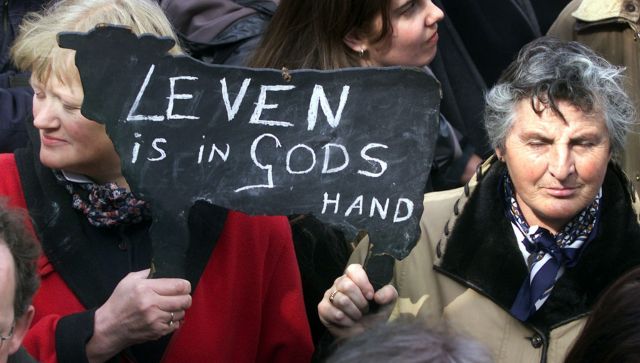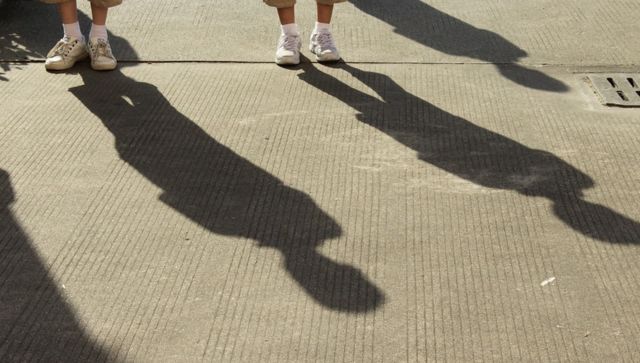The Netherlands has decided to expand its euthanasia rules to include those children under 12 who are suffering “unbearably and without hope”. With this, the Netherlands has become the second nation to allow doctors to induce death in children of all ages, reported Reuters. Belgium has allowed the procedure for kids since 2014. Notably, the Netherlands was the first country to legalise euthanasia and doctor-assisted suicide under very strict conditions in 2002. What does the Dutch law say about euthanasia and what new changes are being introduced? Which other countries allow assisted dying? We explain. Know the terms There is a difference between all three terms. Euthanasia is when active steps are taken to end someone’s life to stop their suffering or intolerable pain. As per The Guardian, the fatal act is administered by someone else, mostly a doctor. If the suffering person themselves requests the procedure, it is called “voluntary euthanasia”. Passive euthanasia refers to the “withdrawal or withholding of life-preserving treatments” at the request of the patient or a family member, according to Euronews. Euthanasia is sometimes also described as “mercy killing”. Assisted suicide is different as the final act is done by the person themselves. It involves helping that person in taking their own life at their request, explained The Guardian. Assisted dying can be used for both euthanasia, mostly voluntary active, and assisted suicide. The Netherlands’ euthanasia law The Netherlands allows euthanasia for patients who have “unbearable suffering with no prospect of improvement” and have requested to die in a way that is “voluntary, well-considered and with full conviction”. Doctors must have formal consent from the patients and should be satisfied there is “no reasonable alternative” to the patient’s situation. [caption id=“attachment_12459522” align=“alignnone” width=“640”] In the Netherlands, medical professionals can administer a lethal injection to patients under its euthanasia law. Pixabay (Representational Image)[/caption] Any Dutch citizen aged 18 or above can ask for assisted death, as per Voice of America (VOA). While parents of teenagers aged 16 and 17 are involved in the discussion, their permission is not mandatory.
In the Netherlands, medical professionals can administer a lethal injection to patients under its euthanasia law. Pixabay (Representational Image)[/caption] Any Dutch citizen aged 18 or above can ask for assisted death, as per Voice of America (VOA). While parents of teenagers aged 16 and 17 are involved in the discussion, their permission is not mandatory.
Children over 12 can ask for euthanasia but require mandatory parental consent until they turn 16.
The country also allows euthanasia for terminally ill babies under one year of age with parental permission, as per AFP. All cases are reported to medical review boards. Doctors also cannot be forced to perform euthanasia. Under the law, medical professionals can administer a lethal injection to patients or provide drugs to patients to help them in ending their lives, as per media reports. In 2020, the Netherlands’ top court allowed physicians to euthanise patients with severe dementia without the fear of prosecution. AFP reported citing government data that over 8,700 people were euthanised in the Netherlands in 2022, out of which the majority had incurable cancer. As per a DutchNews.nl report, 115 people who were assisted to end their lives last year had severe psychiatric illnesses, while another 288 were suffering from dementia. New reforms to the law Under the new changes, euthanasia will be legal for terminally ill children aged between one and 12. The government said in a statement on Friday (14 April) that the rule will include “a small group of about five to 10 children… whose palliative care options are not sufficient to relieve suffering and who are expected to die within the foreseeable future,” reported AFP. “The end of life for this group is the only reasonable alternative to the child’s unbearable and hopeless suffering,” it added. Health ministry spokesman Axel Dees told AFP that if the child is unable to give consent for the procedure, euthanasia could also be performed with the parents’ consent in consultation with a doctor. The new regulations come after years of debate on the issue, with some within Prime Minister Mark Rutte’s own ruling coalition expressing objections. ALSO READ:
Woman moves HC to stop close friend to travel abroad for euthanasia: What the rules in India say
Which countries allow assisted dying? Legalising assisted dying remains a hotly contended issue across the world. While proponents say it offers a humane and dignified way for a person to end their lives, critics object to it on spiritual grounds – arguing that God gives life and only God has the right to take it. [caption id=“attachment_12459532” align=“alignnone” width=“640”] Legalising euthanasia remains contested across the world. Reuters File Photo[/caption] Besides the Netherlands, euthanasia is also legal in Luxembourg, Germany and Spain. Belgium was the second country to legalise euthanasia for adults in 2002 after its Dutch neighbour. It later expanded the rules to include children. Switzerland has allowed assisted suicide since 1942, but active euthanasia is still not legal. Austria, Finland, Chile, Mexico and Norway allow passive euthanasia under strict conditions.
Legalising euthanasia remains contested across the world. Reuters File Photo[/caption] Besides the Netherlands, euthanasia is also legal in Luxembourg, Germany and Spain. Belgium was the second country to legalise euthanasia for adults in 2002 after its Dutch neighbour. It later expanded the rules to include children. Switzerland has allowed assisted suicide since 1942, but active euthanasia is still not legal. Austria, Finland, Chile, Mexico and Norway allow passive euthanasia under strict conditions.
In India, the Supreme Court legalised passive euthanasia in 2018 but with conditions.
Australia legalises voluntary assisted dying but the rules vary slightly from state to state. France is considering a law to allow assisted suicide. It permitted passive euthanasia in 2005, but active euthanasia and assisted suicide are still illegal. Assisted dying is legal in New Zealand under specific circumstances. Canada okays euthanasia and assisted suicide for adults suffering from “grievous and irremediable conditions” whose death is “reasonably foreseeable”. In 2021, it widened its regulations on assisted dying to include adults with a grievous and incurable “disease, illness or disability”, who are in an “advanced state of decline” and are suffering, as per the British daily The Times. In Canada’s Quebec, only euthanasia is allowed. The options of euthanasia and assisted suicide were earlier available in Colombia for only terminally-ill patients. In 2021, the rules were expanded to include some patients with non-terminal conditions. In the United Kingdom, patients can refuse treatement even if that would reduce their life and doctors can also withdraw medical care in certain cases, as per The Guardian. A number of states in America, such as California, Colorado, Hawaii, New Jersey, Oregon, Washington state, Vermont and the District of Columbia, allow assisted suicide for patients under varying circumstances. With inputs from agencies Read all the Latest News , Trending News , Cricket News , Bollywood News , India News and Entertainment News here. Follow us on Facebook , Twitter and Instagram .
)